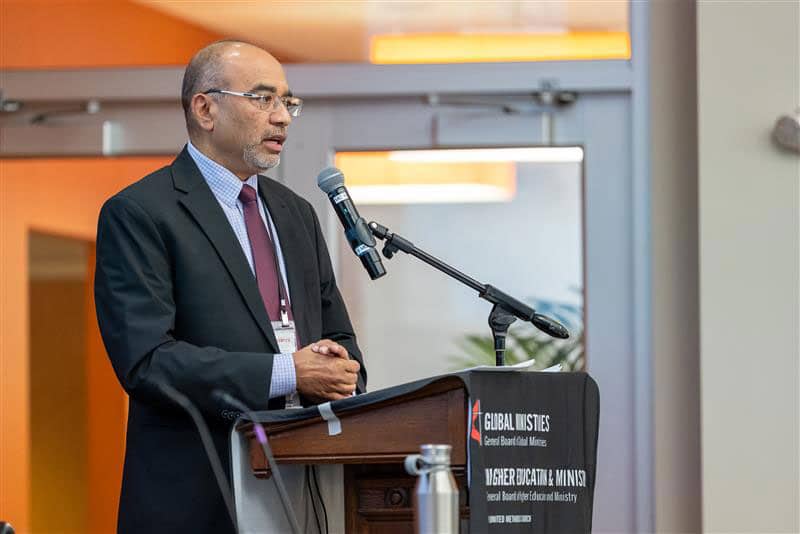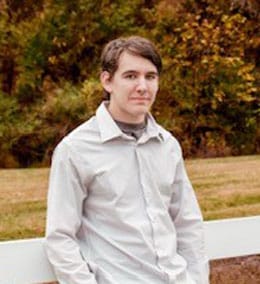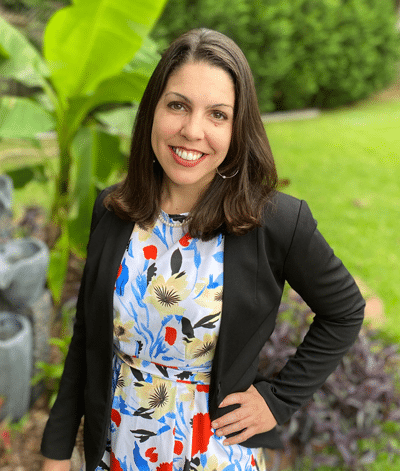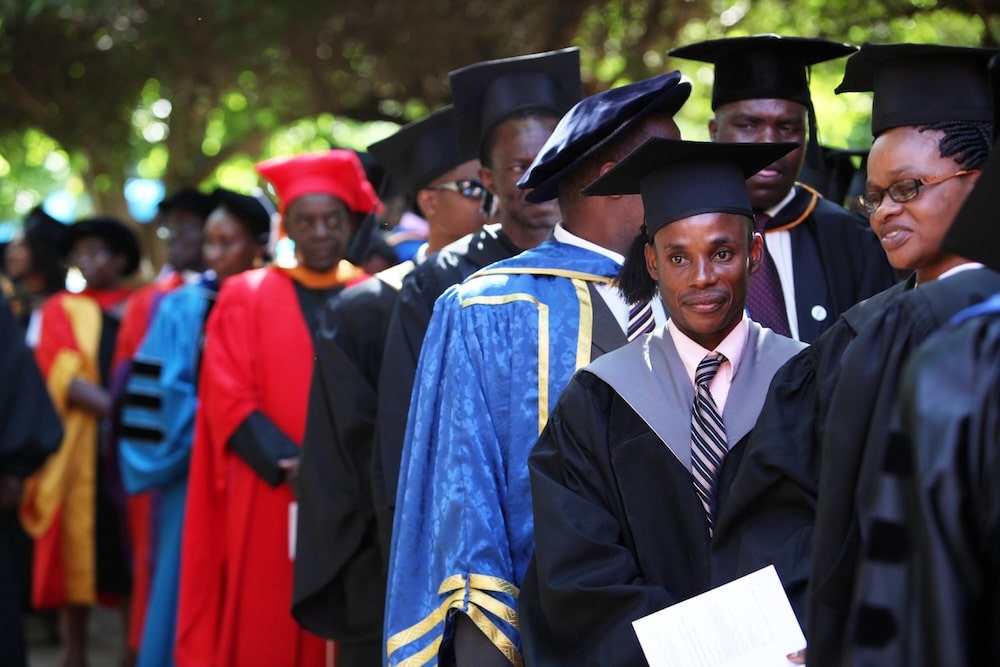ACPE Educator Rev. Dr. Christinah Kwaramba Inspires Transformative Leadership Through CPE Spiritual Training
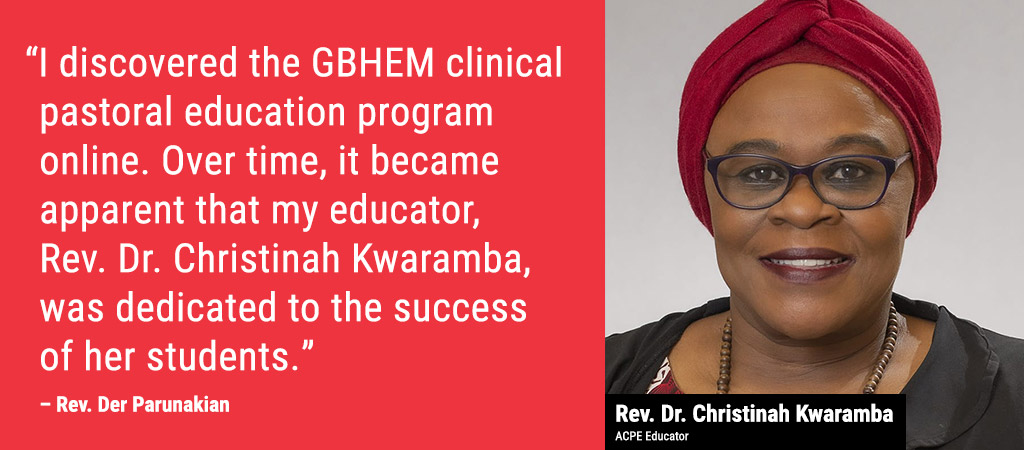
Although the practice of spiritual care has a long history in Christianity, it wasn’t until the early 20th century that a formal model of chaplaincy care was established. In the mid 1920’s Dr. William A. Bryan, Superintendent of the Worcester State Hospital employed Rev. Anton T. Boisen, a former mental patient, to become the hospital chaplain. Anton Boisen had been hospitalized for psychotic breaks from 1920 to 1922, while hospitalized he felt a calling to “break down the dividing wall between religion and medicine.” Boisen believed during the vicissitudes of life, spirituality and faith offered solutions that spoke to the body, mind, and spirit. Boisen encouraged his students to examine their patients as “living human documents” who had the ability to shed light on the nature of the religious experience through pain and healing. This methodology was the start of Clinical Pastoral Education (CPE).
The General Board of Higher Education and Ministry (GBHEM) developed the Center for Integrative Pastoral Practice (CIPP) in 2017. The Clinical Pastoral Education (CPE) Center was later launched to meet the growing need for pastoral education resources within The United Methodist Church. This interfaith program focuses on formation through self-awareness and empathy, granting the capacity for ministry leaders to engage and shepherd people with spiritual guidance during the most difficult times of their lives. CPE utilizes innovative techniques to train students, including group and individual instruction conducted online, allowing accessibility for those residing far from traditional CPE centers.
From fall 2021 to summer 2022, 11 groups with 65 students participated in the program, yielding a 180% year-over-year increase. 100% of participants in the fall 2021 CPE cohorts said they would “recommend the CPE training to a friend or colleague in a similar role.” While there are many factors to credit for the success of the GBHEM led program, the effective teaching techniques and mentorship of Rev. Dr. Christinah Kwaramba, ACPE certified educator and faculty member of the CIPP, has certainly made a powerful impact on the lives of those she has instructed.
Rev. Bodhi K. Der Parunakian is a current hospice chaplain, who first began her journey with CPE in 2015, taking one unit of CPE at a different center; however, it wasn’t until five years later that she decided to take more CPE courses. Rev. Der Parunakian recalls, “I discovered the GBHEM clinical pastoral education program online. I was only seeking to take one more unit of CPE, and using my local appointment as my site was the perfect solution. Over time, it became apparent that my educator, Rev. Dr. Christinah Kwaramba, was dedicated to the success of her students. She invited me to take two more units and work towards endorsement with the United Methodist Endorsing Agency and become board-certified through the Association of Professional Chaplains (APC).” Rev. Der Parunakian is the first student in the program’s history to complete three units of CPE.
CPE uses the most trusted and tried means to develop pastoral care practices that foster meaningful relationships with skill and self-awareness. “The hours of classes, individual supervision, peer feedback, reflections, and the consistent dedication of my instructor, helped me to be aware and unlearn deeply embedded trauma issues related to my family. I am now healthier in managing my issues while ministering to others.” Expressed Rev. Der Parunakian.
Rev. Jim King, a current CPE student, praised the program for its ability to provide a deeper meaning to ministry in his life. “I am grateful for the opportunity to go through CPE, as it has given me a way to shift my understanding in this world and be in ministry in everything that I do.”
The flexibility of the program also allows for students to complete CPE requirements within their ministry contexts. CIPP graduate Rae Hamilton found this flexibility extremely helpful in her current work. “As a Children, Youth, and Family Director at Centenary United Methodist Church, my job focuses on working with children 5-18 years of age, along with their parents and/or guardians. CPE has helped me to be more confident to interact with each of these individuals.” Hamilton expressed. “I feel more comfortable taking the initiative in these situations and providing comfort to the youth and their parents, in ways I honestly did not think would be possible for me. My goal is to become someone the youth can share their precious moments with and because of my training with CPE I feel I am becoming that person.”
Rev. Khalif A. Smith Sr., senior pastor at the First United Methodist Church of Mesa, Ariz., has only taken one unit of CPE but already feels the program is impacting his life significantly. “What I have learned in CPE has transformed my practice of ministry by giving me the confidence that I need to enter any situation with an open heart and open mind. Using the process of action, reflection, action and receiving guidance and support from my CPE educator, Rev. Dr. Christinah Kwaramba, I have learned to listen deeply, identify personal and group dynamics, reflect upon my past, and form meaningful connections.”
Rev. Smith is in the process of transitioning to the role of Director of Connectional Ministries with the Desert Southwest Annual Conference and credits his current CPE training with teaching him valuable lessons that he will continue to use throughout his ministry leadership.
Precious few people are invited to share with others during their struggles with addiction, medical diagnoses, personal tragedies or spiritual crises. The beautiful irony of the CPE program is that while it’s created to provide compassionate spiritual care to others during critical life moments, the learning atmosphere creates the opportunity for students to become more compassionate and loving towards themselves. This type of compassionate and empathetic leadership is crucial in accomplishing the mission of the United Methodist church “to make disciples of Jesus Christ for the transformation of the world.” It is a gentle reminder that first, the transformation must start from within.
Related Posts
Report of General Secretary Roland Fernandes to the Board of Directors of Global Ministries and Higher Education and MinistryApril 10, 2025 | By Elliott Wright ATLANTA – Directors of two of The United Methodist Church’s program agencies, both international in scope, were challenged by their shared leader to strengthen their work...
“I am so grateful and humbled. This scholarship helps me fulfill my dream of attending college, and I look forward to continuing to grow my faith within the Methodist Church throughout college and beyond.” — Matthew Mertes, The Ohio State University Matthew Mertes is...
Haley M. Reardon to Lead Fundraising Efforts for Higher Education and Ministry and Global Ministries
Haley Reardon, chief development officer Haley M. Reardon joins the General Board of Higher Education and Ministry and the General Board of Global Ministries as chief development officer on March 24, 2025. Reporting to General Secretary Roland Fernandes, Reardon will lead both agencies in advancing their global...
